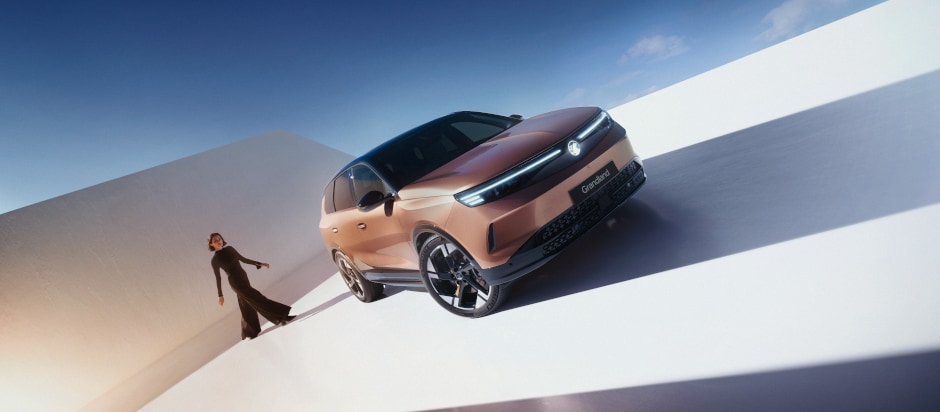
Buyer’s guide
Buying a car is a big decision
Buying a car is a big decision

Think about space and distance
Choosing the right car for your lifestyle makes all the difference.
If you have a dog, play golf or use your car for holidays, a 4 or 5-door model could be ideal. Fold down seats, a tailgate and smart storage solutions can make everyday journeys more convenient.
It's also worth considering how far you drive. If you’re mostly in town and driving a few miles each day, a smaller car with parking sensors for tight spaces can be more suitable. For longer drives, features like 6-speed transmission and super-relaxing, supportive sports seats can really enhance your comfort.

Safety
Vauxhall cars put your safety first
Our vehicles are packed with active and passive satefy features to keep you a peace of mind on every journey. Active safety features like Foward Collision Alert, Automatic Emergency Braking, and Lane Keep Assist are there to enhance your safety on the road. Other systems, such as, Anti-lock Braking, Traffic Sign Recognition, and Driver Drowsiness Alert, offer extra safety support.
Passive safety features such as airbags, crumple zones and seat belt pre-tensioners are designed to offer protection in the case of a collision. You can deactivate the front passenger airbag, making it safe to fit a rear-facing child seat when needed.
Read more Show Less
Extras
Whichever Vauxhall you choose, you’ll find the standard model has plenty to offer. But if you want additional features, please refer to the brochures or use our vehicle Build & Price tool.
It’s also worth keeping in mind that higher trim levels, which come with more features as standard, often offer better value for money and can be easier to sell on later.
If you’re choosing accessories, take your time, speak to your retailer for advice, and make sure you allow enough time for them to be fitted properly.

Think about space and distance
Having the right number of seats makes all the difference. So if you have a dog, play golf or use your car for holidays, consider a 4 or 5-door model. And don’t forget: fold down seats, a tailgate and handy storage make things more convenient.
It also worth considering how far you drive. If you’re a townie driving a few miles each day, you probably need a smaller car with parking sensors, for tight spaces. And if you drive a lot, you’ll probably want 6-speed transmission and sports seats for added comfort.

Safety
Vauxhall cars put your safety first. Active features include anti-lock brakes and forward collision alert to help you avoid an accident. Passive features include crumple zones, seat belt pre-tensioners and airbags to protect you in the event of a crash.
While we’ve done most of the thinking for you, there are a few things you should think about. For instance, if you have a young child, you’ll need to be able to de-activate the passenger airbag, so you can fix a rear-facing child seat in the front.

Extras
Whichever Vauxhall you choose, you’ll find the standard model has plenty to offer. But if you want additional features, please refer to the brochures or use our vehicle Build & Price tool.
It’s also worth bearing in mind that models with higher levels of trim and more features as standard offer good value for money and can be easier to re-sell. And if you decide to handpick your accessories, remember to take your time, consult your retailer and allow time for the accessories to be fitted.
Engines and environment
Engines and environment
|
Electric/Hybrid
|
Petrol
|
Diesel
|
|---|---|---|
| Have lower servicing and maintenance costs | Better for shorter journeys / town and city driving | Better for longer journeys / motorway driving |
| Are cheaper than both petrol and diesel to run | Less maintenance than diesel engines | More torque than a petrol engine - better for moving heavier loads |
| Can suit people's daily and longer journeys | Are cheaper to buy than diesel engines | Produce less CO2 and normally better fuel economy than a petrol engine, meaning running costs are normally lower |





